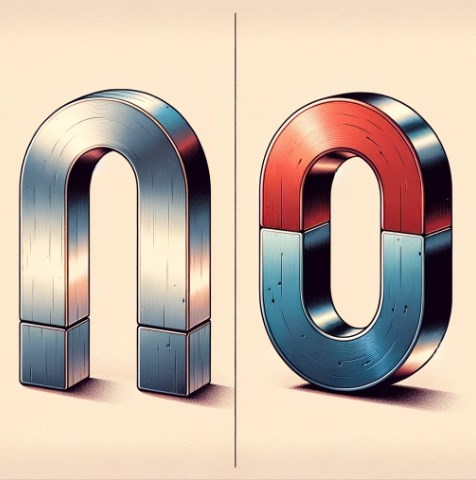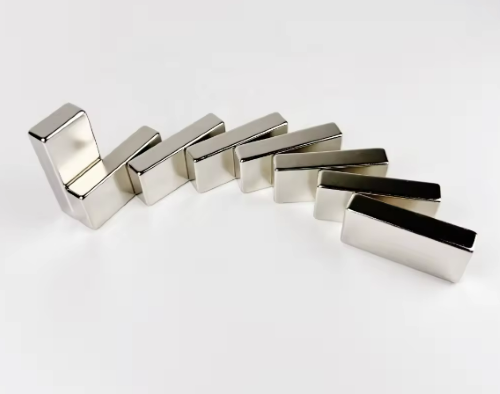6 Uses of Permanent Magnets In Everyday Life
Magnets are essential materials used in many applications, ranging from basic to high-profile. Magnets are used in sound devices like microphones, electric systems, radio and television, automobiles, refrigerators, etc. However, to better understand the uses of magnets, you need to look at them according to their types. Magnets are broadly classified into two; electromagnets or temporary magnets, and the other is permanent magnets. Each of these two has its separate uses and applications. Since the focus of this article is permanent magnets, let's zero in on that and discuss them in further detail.
So, what are permanent magnets?
Permanent magnets are strong magnets or powerful magnets that maintain their magnetic properties for a long time. You can also refer to permanent magnets as materials that retain their magnetism long after being exposed to a magnetic field. Permanent magnets are present in many materials used in major industrial and commercial applications. Note, however, that permanent magnets are susceptible to heat or high temperatures, making them lose their magnetic properties. Some are so brittle that they break under high temperatures. Normally, when heated above the Curie temperature, the material's magnetic properties could decrease or disappear totally. The same applies when they are heated in an environment with high reverse magnetic field strength There are different types of permanent magnets, such as Ceramic, Alnico, Samarium Cobalt, Neodymium Iron Boron, Injection Molded, and Flexible magnets. In terms of shape, these magnets can also be classified as horseshoe magnets, bar magnets, pot magnets, hand magnets, and disc magnets. Generally, all permanent magnets are divided into two categories, which are:
- The alloy permanent magnet, such as the rare earth permanent magnet materials, and
- The ferrite permanent magnets. Ferrite permanent magnet could be either sintered ferrite, bonded ferrite, or injection ferrite depending upon the production process.
Now that you better understand what permanent magnets are and have a little more information about the different types, let's get to the uses of permanent magnets in our everyday lives.
Common uses of permanent magnets in everyday life
Permanent magnets have a wide range of applications. Here are 6 of the most common ones.
1. Automobile manufacturing
Both hybrid and electric vehicles are manufactured using very powerful permanent magnets. The main principle used here is the ability of the magnets to convert mechanical force into electrical force. These magnets are an essential component of the vehicles and are made of materials with a high composition of rare earth magnets. These kinds of magnetic materials are pricey and limited in supply.
2. Loudspeakers
Loudspeakers contain a mobile electromagnetic coil, around which the permanent magnet is fixed. This setup uses the same principle in electric cars, where electrical energy is converted into mechanical energy. The electromagnetic material is attached to a diaphragm or cone, amplifying vibrations to emit sound waves. The frequency of the vibration controls the pitch or intensity of the sound produced by the loudspeaker.
3. Hard disk drive
Another place where permanent magnets find practical application is in disk drives. They play a central role in helping to store information in the drives. Hard disk drives (HDD) usually are made up of 3 permanent magnets. The mechanism involved in reading and writing information on hard disks is quite interesting. A fixed magnet serves as the actuator, moving the read-write arm based on its interaction with an electromagnet. There’s another small permanent magnet at the end of the read-write arm, which is in charge of the reading-writing actions using a platter. The third magnet is a spindle motor, which facilitates the movement (rotation) of the platter at high speed. This way, the HDD can read and store information.
4. Refrigerators
Did you know that a permanent magnet is used in making refrigerators? You may not have noticed it, but whenever you close the refrigerator, the small magnet embedded in the door is what allows the door to close. If you observe closely, the refrigerator's door usually acts as though the fridge itself is pulling it. That is the magnet at work! Unlike in electric generators and loudspeakers, the magnet, in this case, is not a strong magnet.
5. Jewelry
Permanent magnets are used in making your jewelry. Earrings, bracelets, necklaces, and beads contain permanent magnets that ensure they clasp together. Neodymium magnets, in particular, can be used to create bipolar magnetic neodymium jewelry.
6. Magnetic drive pumps
Pumps coupled with magnetic materials are helpful both in home gardens and industrial settings. The setup in magnetic drive centrifugal pump operation is similar to that of a standard centrifugal pump. However, the motor shaft seal is removed, eliminating leaks caused by shaft seal failure. There are many more applications of permanent magnets in everyday life. Permanent magnets are used in headphones, induction cookers, MRI machines, particle accelerators, transformers, electric generators, and even door locks. For more information, please visit our homepage.















